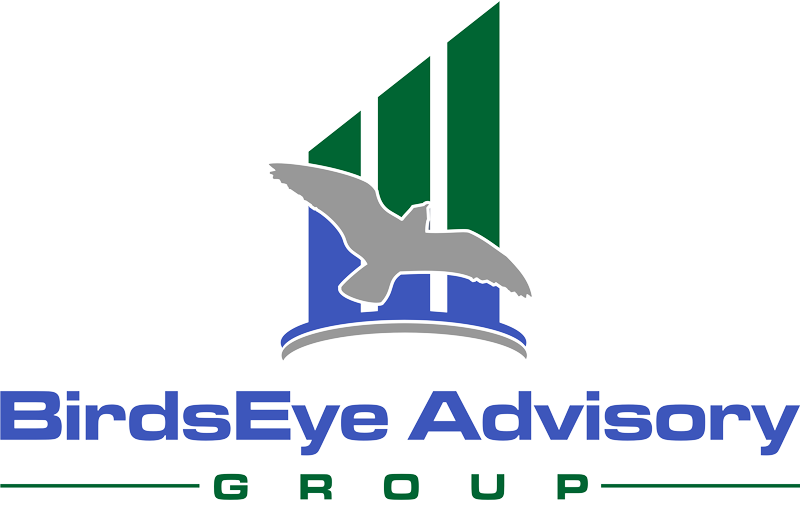
Did you know that there is a 50% probability that a pet business owner will be impacted by one of the dreaded “D’s” sometime during the time they own their business: Death, Disability, Divorce, Disagreement or Distress?
As you can see from this list of “D’s”, these aren’t circumstances most people would want. But that does not mean that you should not have plans for any of these life “what ifs,” should one of them occur to you. If you are the owner of a pet business, never forget that you have people that rely on you for your business’ income—both your own family members and your staff and their families. It would be irresponsible not to put serious thought into what would happen to your business and employees if one of these unfortunate “D’s” happened to you.
These are all scary subjects, so let’s discuss just 4 of the 5 D’s here: Death, Disability, Divorce and Disagreement, and how you should plan for these possibilities. While I know this isn’t the most pleasant of topics, it’s a very important one. So bear with me!
Death and Disability.
Obviously, most people don’t know when they will die and most people don’t plan on becoming disabled. Unfortunately, these terrible events do occur, and often happen unexpectedly. While they can obviously be cataclysmic for your family—these events can also destroy a business if the business owner has not made basic plans to address these issues. In addition, the larger a pet business becomes, the more people these sad events will negatively affect.
As a Certified Exit Planning Advisor, one of the first things I do when I begin to work with any pet business owner is determine what “de-risking” measures need to take place to solidify their company’s foundation. This usually starts with a difficult conversation about the “what ifs” surrounding how their business would be impacted by their Death or Disability. Typical questions I ask a business owner include:
-
- Do you have a will?
- Does your will address what you would want to do with your business in the case of your death?
- If you became disabled or incapacitated, have you designated someone as your power-of-attorney, who could handle your personal and/or business affairs?
- Does this person know exactly what your wishes for the business would be if you became disabled or incapacitated and could not work?
- Have you identified someone capable of running the business, even for a short while, if you became disabled or died?
Most of the clients I have worked with over the years cannot answer “Yes” to all of these questions when first asked, so I of course encourage them to begin addressing these important matters. Immediately. Many pet business owners know that these issues should be addressed, but simply haven’t prioritized tackling them. Having an accountability partner to support them in having these difficult conversations with family, friends or business colleagues and in actually making these decisions, is critical so that these matters are resolved in a timely manner. No one wants to think about their own death or disability; but a smart and realistic pet business owner knows that it is an item on their To Do list that absolutely must be addressed as soon as they have people relying on them for their income.
Divorce and Disagreement.
Many advisors will tell a business owner that they should always “start and run their business with the end in mind.” What exactly does that mean? While the saying is actually relevant in many areas, for the purpose of this discussion it means that you should create rock solid, thoughtful legal agreements in all important business areas from the moment you start your pet business. Create these agreements when you are joyful and optimistic about the new business venture, and cannot foresee anything bad happening. That is the best and easiest time to have conversations with business partners to outline: who is responsible for what, what the terms of your partnership will be, how you will handle disagreements if they arise, and to specifically detail how you would want to separate as partners if either of you chose to exit. Having these open discussions, and getting a legal partnership or buy-sell agreement in place that addresses typical contingencies before something bad happens, is critical to ensuring the long term health of your business.
I have seen too many situations over the years where: a) there was no written, legal partnership agreement in place at all between partners; b) there was a partnership agreement in place but it wasn’t kept up-to-date, or c) it lacked specificity around how to handle major disagreements or a partnership dissolution. These omissions led to significant pain and upheaval when the partnership disintegrated, and there was no clear roadmap on how to go separate ways. Having no legal document to guide the dissolution of a partnership is a terrible place to be when you may be quite angry with your partner(s).
Consider this example. I recently advised a pet company that was owned by two partners, who originally started out as good friends. They had worked together for about 15 years at the time I met them, and they were 50/50 equal partners in the business. Unfortunately they were also barely speaking with each other anymore, due to a number of business issues and overall poor communication. To make matters worse, their initial partnership agreement was very simple and outdated, and did not address how to handle important matters where the partners did not agree. Remember, with a 50-50 ownership split, they had to be in agreement with each other in order for any major decision about the company to occur, and sadly they could no longer see eye to eye on much. They realized they could not continue on as partners, but they had no roadmap to guide a peaceful separation. This is not a place anyone wants to find themselves in, and was avoidable if they had taken the time at the beginning to better outline in their partnership agreement how to handle disagreements or had more specificity around how to separate.
These types of disagreements are difficult enough when a business partner is a friend, but can be even more complex if your spouse is your business partner too. While all of the advice above would apply equally if a spouse is your business partner, it is also something to be mindful about when you first incorporate your business as well.
For example, is your spouse listed as a shareholder in your pet business, even if he or she does not actively participate in it in any way? There are various pros and cons for setting up your business this way; I simply recommend thinking through very carefully how this type of setup would impact your business if you later divorced. Would you be forced to buy back his or her shares? Do you understand how much that could cost, and could you afford it? What are the benefits to having your spouse as a shareholder and what are the cons? Even if your spouse is not a shareholder or partner in your business, would your business be put at risk if you divorced since the business could be considered a marital asset that would need to be divided? Similarly, if you are not married currently but plan to marry someday, should you have a prenuptial agreement that clearly states that assets like your business are protected from your spouse if you ever divorced? Be sure that you have asked all of these questions to a qualified attorney before entering into such decisions, and get a legal document in place that incorporates your wishes.
Death, disability, disagreement and divorce are proven business killers. If you have not addressed these 4 D’s for yourself, there is no time like the present. The peace of mind that you will receive from tackling these dreaded contingencies is truly priceless.
Erin Fenstermaker, an 18-year veteran of the pet industry, is a Certified Exit Planning Advisor (CEPA) and M&A professional with BirdsEye Advisory Group. She holds two Bachelor’s degrees and an MBA from Southern Methodist University, and also earned a dog training certification from Animal Behavior College. You may reach her at erin@birdseyeadvisory.com.
